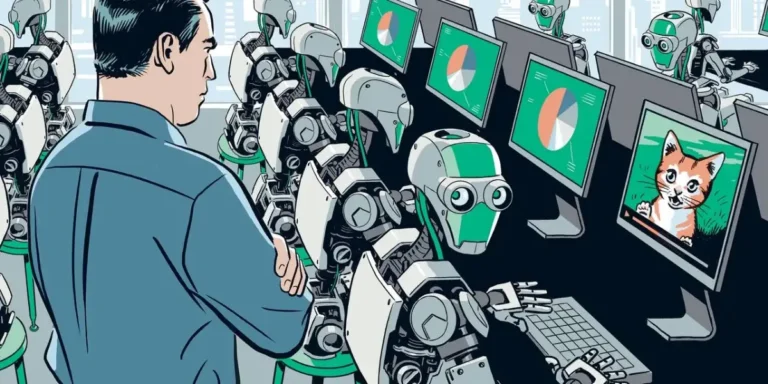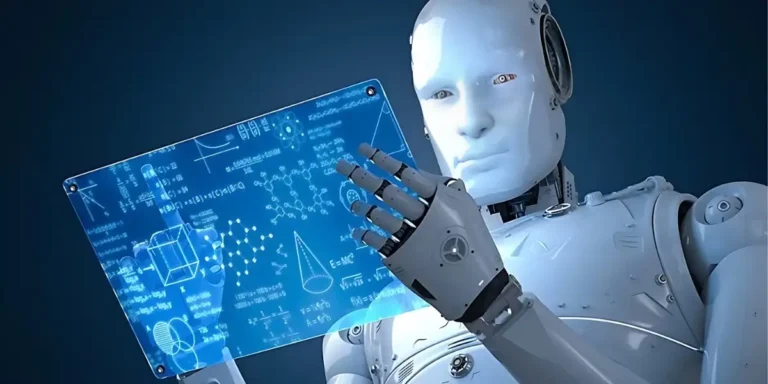With its incredible capabilities, many are wondering whether AI will eventually replace human backend developers.
In this blog post, we will delve into the subject and explore the potential impact and limitations of AI on the future of backend development and their job market, Integrate AI into the backend development process,
we will also discuss the required skills should learn by a backend developer to stay relevant in the age of AI.
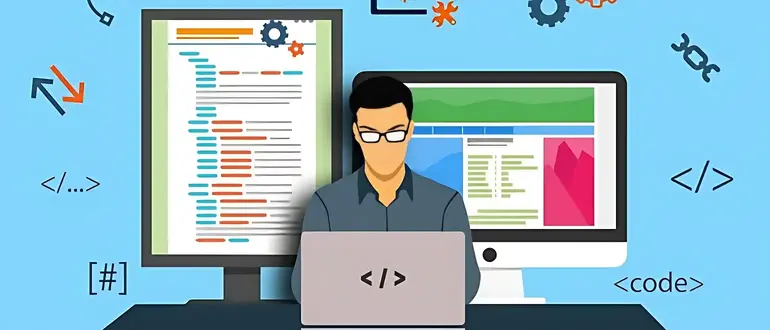
Will AI Replace Backend Developers?
No, AI is unlikely to replace backend developers as it can only perform specific tasks that have been programmed into it.
Backend development calls on a variety of characteristics, such as creativity, critical thinking, and problem-solving, which go beyond what AI is now capable of.
Instead, AI is more likely to complement and augment the work of backend developers.
How Does AI Impact The Job Market For Backend Developers?
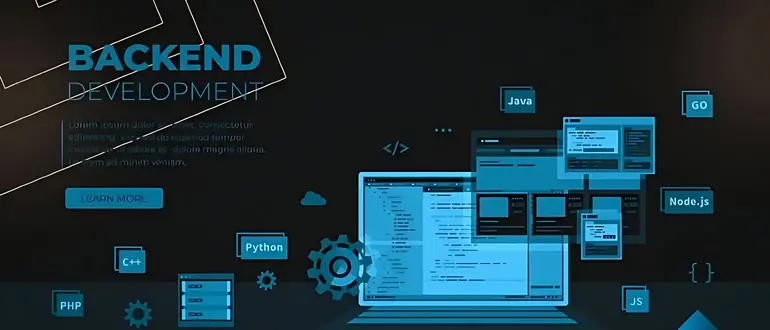
A rise in the need for AI expertise
Backend developers with AI expertise are in more demand as AI technologies become more commonplace.
This indicates that backend engineers who are knowledgeable in AI and ML technologies would certainly find employment in high demand.
For instance, backend engineers with experience in computer vision or natural language processing (NLP) are anticipated to be in high demand by businesses creating AI-based solutions.
Automation of repetitive tasks
Automation of repetitive work is one of the main ways AI is changing the employment market for backend engineers.
Automating repetitious processes like testing, debugging, and code optimization is possible using AI.
Backend developers may concentrate on more challenging and innovative work that eventually produces better products by automating these repetitive operations.
AI may be used, for instance, to automatically build test cases and imitate user behavior, which can help find flaws more quickly and repair them.
AI can also enhance code by recommending changes and spotting possible performance problems.
Creation of New Job Roles
AI is also creating new job roles in the backend development field.
For example, companies may now require backend developers who specialize in developing and maintaining AI systems.
These developers may need to have specific skills and knowledge related to AI and ML technologies.
Additionally, AI is also creating new opportunities for backend developers to work in industries that are using AI-based technologies.
For example, healthcare and finance industries are increasingly using AI to improve patient outcomes and financial analysis.
As a result, backend developers with experience in these industries and an understanding of AI technologies are likely to be in high demand.
Reduced demand for manual testing:
AI is also impacting the demand for manual testing in backend development.
AI can perform automated testing, which is faster, more efficient, and more accurate than manual testing.
This means that companies may not need as many manual testers, which could impact job availability in this field.
Integration of AI into Backend Development Tools
AI is impacting the job market for backend developers by being integrated into development tools.
Many backend development tools are now incorporating AI and ML technologies to help developers write better code, debug faster, and optimize performance.
For example, some development tools now use AI to suggest improvements to code or identify potential performance issues.
Additionally, some tools are using AI to assist with version control and deployment processes, which can help improve the overall efficiency of backend development workflows.
AI can change the nature of backend development
Last but not least, it’s important to remember that AI has the power to alter the fundamental nature of backend development.
As AI develops, it could be able to do an increasing number of duties once handled by backend engineers.
As a result, there may be a change in the knowledge and abilities needed for backend development as well as the kinds of daily operations carried out.
How Can AI Be Integrated Into The Backend Development Process?

Understand the basics of AI
Before you can integrate AI into your backend development process, you need to understand the basics of AI.
AI is a subset of computer science that deals with machines performing tasks that would typically require human intelligence, such as problem-solving and decision-making.
AI algorithms use data to learn and improve their performance over time. There are various types of AI, including machine learning, natural language processing, and computer vision.
Identify opportunities for AI integration
The first step in integrating AI into your backend development process is identifying opportunities where AI can add value.
Look for areas where AI can automate repetitive tasks, improve accuracy, or provide insights from large amounts of data.
For example, AI can be used for predictive maintenance, anomaly detection, and fraud detection in financial systems.
Choose the right AI tools and technologies
Once you’ve identified areas for AI integration, you need to choose the right AI tools and technologies.
There are various AI frameworks, libraries, and platforms available, such as TensorFlow, Keras, PyTorch, and Scikit-learn.
Choose the AI tools and technologies that best suit your project requirements.
Collect and preprocess data
AI algorithms need data to learn and improve their performance. Collecting and preprocessing data is a critical step in integrating AI into backend development. Data should be relevant, accurate, and diverse.
Preprocessing data involves cleaning, transforming, and normalizing the data to ensure it’s in the right format for AI algorithms.
Develop and train AI models
Once you’ve collected and preprocessed data, you can start developing and training AI models. AI models are algorithms that use data to learn and make predictions.
The development process involves selecting the right AI model architecture, tuning hyperparameters, and evaluating the model’s performance.
Training an AI model involves feeding it with data and adjusting its parameters until it achieves the desired accuracy.
Integrate AI models into backend systems
After developing and training AI models, you need to integrate them into your backend systems.
This involves deploying AI models on servers, creating APIs to communicate with the models, and integrating the models into your backend workflows.
You can also use cloud-based AI services such as Amazon Web Services, Google Cloud Platform, or Microsoft Azure to deploy and manage your AI models.
Monitor and evaluate AI models
Integrating AI into backend development is an ongoing process. You need to monitor and evaluate your AI models’ performance regularly.
This involves collecting feedback, retraining models, and improving their accuracy over time.
It’s essential to establish metrics to measure the success of your AI models and ensure they’re delivering the desired outcomes.
What Skills Will Be Necessary For Backend Developers In The Future With AI?
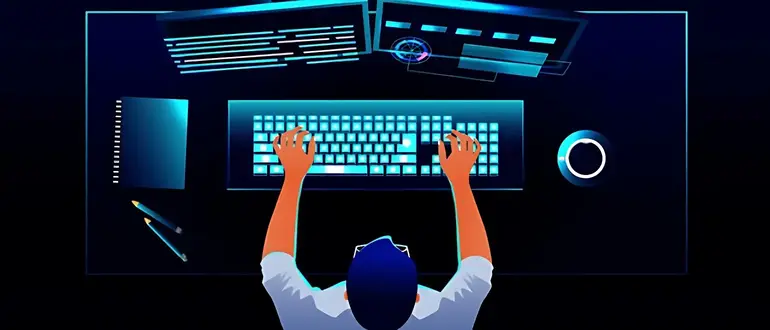
Technical capabilities
To design business solutions and apps, backend developers need to possess certain technological skills.
To create efficient and successful backend coding, they need a good grasp of programming languages, algorithms, and logical reasoning.
They should also be able to identify issues and apply fixes in a timely and correct manner.
A strong background in computer science, including knowledge of data structures, algorithms, and software engineering principles, is a need for a skilled backend developer.
Back-end programming languages
To build a sturdy frame and its communication through servers, backend developers need to have a good command of back-end programming languages like Python, Java, and PHP.
The basis for writing effective and efficient backend programming is provided by these languages.
To expedite the development process, backend engineers should also be knowledgeable with frameworks like Node.js, Django, and Ruby on Rails.
Git
Version control is a crucial skill for backend engineers, and Git is a fast, adaptable, and safe tool for it.
It makes managing projects with several contributors simpler by enabling developers to collaborate on code and monitor changes over time.
Backend engineers must be knowledgeable with other version control programs like SVN and Mercurial.
Cache and databases
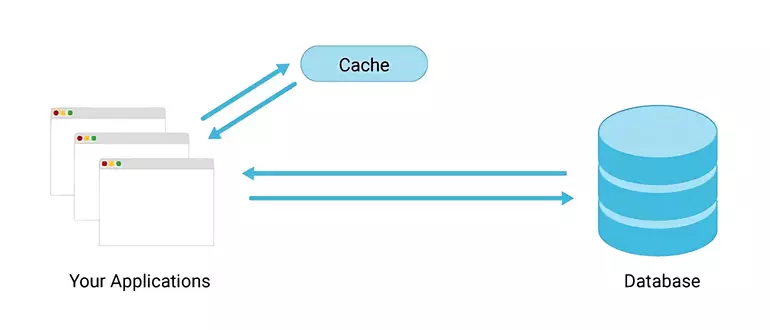
It is essential to have a fundamental grasp of the procedures, frameworks, and algorithms used to implement and display data since backend development is data-driven.
Some of them include an understanding of databases and caches, linear and binary search, hashcode implementations, data sorting, stacks, queues, and lists.
Backend engineers should be knowledgeable on well-known caching systems like Redis and Memcached as well as database management systems like MySQL, MongoDB, and PostgreSQL.
Web development languages
To build a solid and responsive website, backend developers must be knowledgeable in web development languages like HTML, CSS, and JavaScript.
Backend developers utilize these languages to build the structure and operation of the website while front-end developers concentrate on its aesthetic elements.
Additionally, they must be knowledgeable with web application frameworks like AngularJS, ReactJS, and VueJS.
Cloud Computing
Backend developers must be familiar with cloud computing platforms and services as more businesses migrate their systems to the cloud to design, create, and deploy applications.
Microsoft Azure, Google Cloud Platform, and Amazon Web Services are a few of the well-known cloud computing systems.
Backend developers must be knowledgeable about ideas like containerization, load balancing, and auto-scaling.
APIs
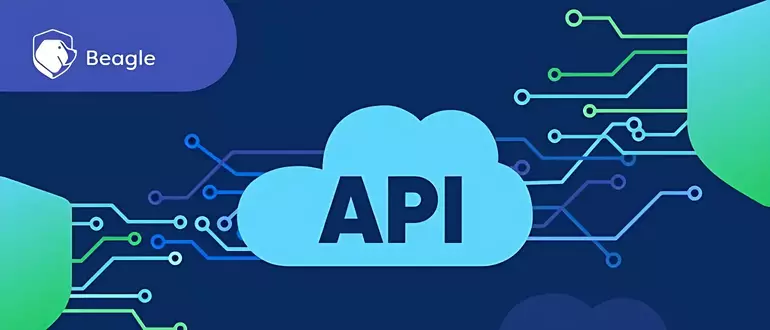
To create and manage scalable and secure systems, backend developers must be familiar with APIs, particularly REST and SOAP.
REST and SOAP are two of the most popular forms of APIs, which are used to enable communication between various software systems.
The API documentation and testing tools should also be recognizable to backend developers.
Agile Development
Backend engineers need to be proficient in agile development processes like Scrum and Kanban to work with teams, boost productivity, and complete projects more quickly.
These approaches put a strong emphasis on teamwork, communication, and adaptability, which makes them perfect for hectic development situations.
Backend engineers should be knowledgeable with project management platforms like Jira and Trello.
Talents in communication
Backend developers must work closely with other team members, such as designers, front-end developers, and project managers, to ensure that the application complies with the needs and specifications.
They should be able to collaborate productively with team members who are located remotely and clearly explain technical ideas to non-technical stakeholders.
Soft skills
Backend developers should have soft skills like creativity, flexibility, problem-solving, and collaboration in addition to technical abilities to be competitive in the employment market.
These abilities enable developers to collaborate with others on projects successfully,
What Are The Limitations Of AI In Replacing Backend Developers?

Lack of creativity
The inability of AI to fully replace backend developers due to their lack of inventiveness. AI is capable of learning from data and making predictions, but it cannot come up with original ideas.
Humans, as opposed to AI, are capable of applying original thought and developing creative solutions to challenging issues. Backend engineers must address problems creatively, which is a skill that AI lacks.
Limited Understanding of Context
AI excels at data analysis and pattern recognition, but it has limited comprehension of context.
For instance, a human developer may construct a tailored solution by taking the company’s culture, beliefs, and objectives into consideration while building a backend system for it.
Contrarily, AI is unable to comprehend context, making it challenging to create a solution that addresses the particular requirements of the business.
Inability to Learn on its Own

The quality of AI depends on the data it is taught on. It needs human assistance to perform better since it cannot learn on its own.
In other words, AI is limited to what it has been taught to do and is unable to acquire new abilities or adapt to changing circumstances.
Contrarily, human developers can pick up new abilities and technologies and change with the times.
Emotional intelligence deficit
Backend engineers must possess the emotional intelligence to establish connections and communicate clearly with teams and customers.
AI is incapable of forming relationships or communicating effectively because it lacks emotional intelligence.
Although AI may be trained to react in certain circumstances, it lacks the emotional intelligence of a human programmer.
Inability to Handle Complex Situations
Complex problems must be handled throughout backend development, and AI is often ill-equipped to do so.
While AI is capable of doing repetitive activities and producing data-based predictions, it is unable to manage complicated scenarios that call for human judgment and decision-making abilities.
Human developers are capable of analyzing difficult issues, coming to wise judgments, and coming up with original solutions.
FAQs
How Does AI Currently Impact Backend Development?
AI can be used in backend development to automate tasks such as database management, security checks, and monitoring.
However, it is not yet advanced enough to replace the role of a backend developer entirely.
Will AI Replace Backend Developers In The Future?
It is unlikely that AI will completely replace backend developers in the future.
While AI can automate certain tasks, backend development requires human problem-solving skills and decision-making abilities that cannot be replicated by AI.
How Can Backend Developers Benefit From AI?
Backend developers can benefit from using AI tools to automate repetitive tasks, such as testing and debugging.
They can also use AI to analyze large amounts of data and provide insights that can inform their development decisions.
Will AI Create New Job Opportunities In Backend Development?
Yes, AI is likely to create new job opportunities in backend development, as AI technologies become more advanced and are integrated into backend development workflows.
These new roles may involve working alongside AI tools to develop more efficient and effective web applications.
How Can Backend Developers Prepare For The Impact Of AI On Their Role?
By remaining up to speed with the most recent AI developments and understanding how to incorporate AI tools into their development processes, backend developers may be ready for the effects of AI.
They may also concentrate on honing qualities like problem-solving and judgment that AI cannot mimic.
Conclusion
Although AI technology has advanced significantly in recent years, it is doubtful that backend engineers will ever totally be replaced by it.
Even while AI may automate certain jobs, complex systems will always need human knowledge to design, create, and maintain.
Backend developers will continue to be essential to the IT sector, guaranteeing the flawless operation of systems driven by AI.
Therefore, individuals concerned that AI would take their employment soon need not be.

